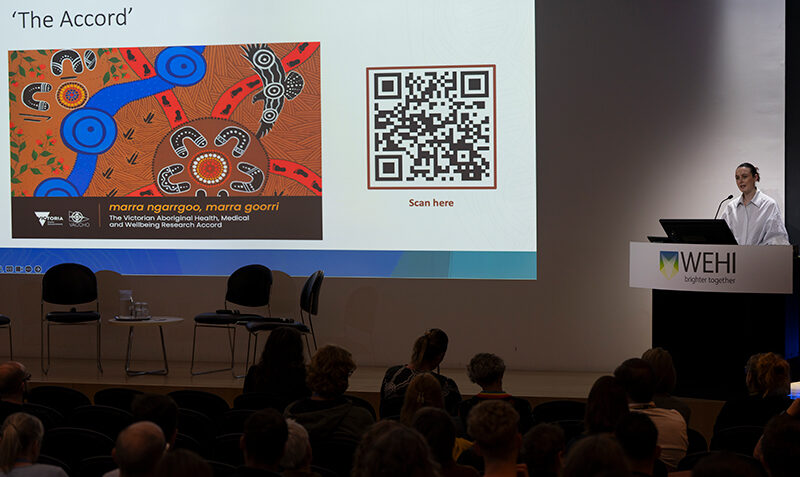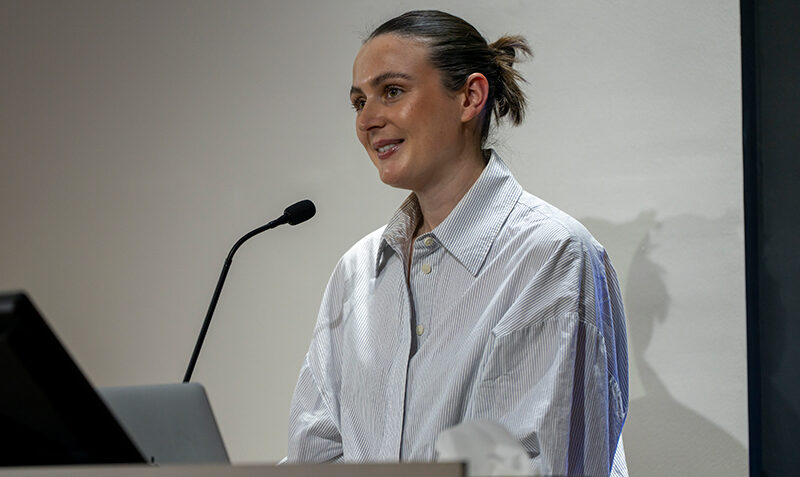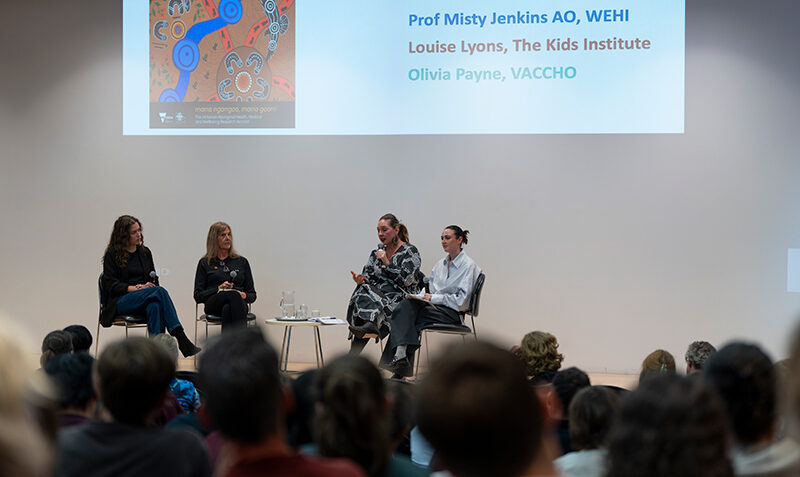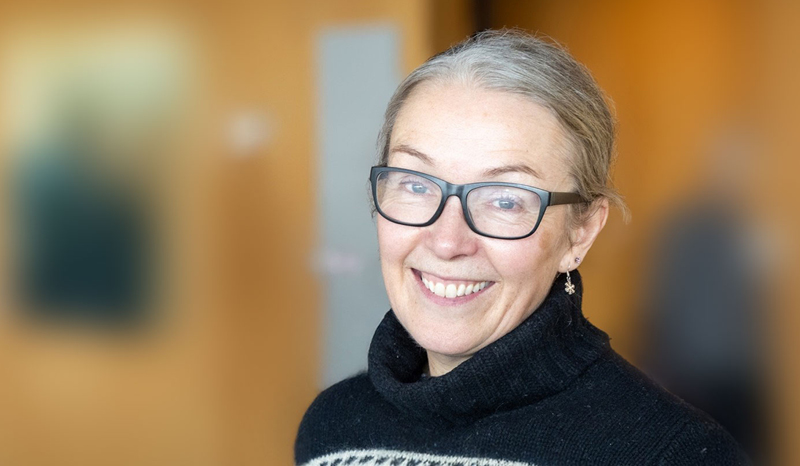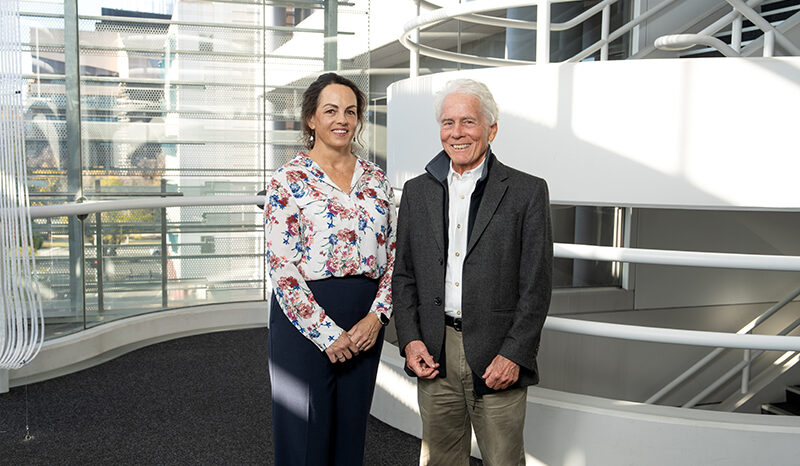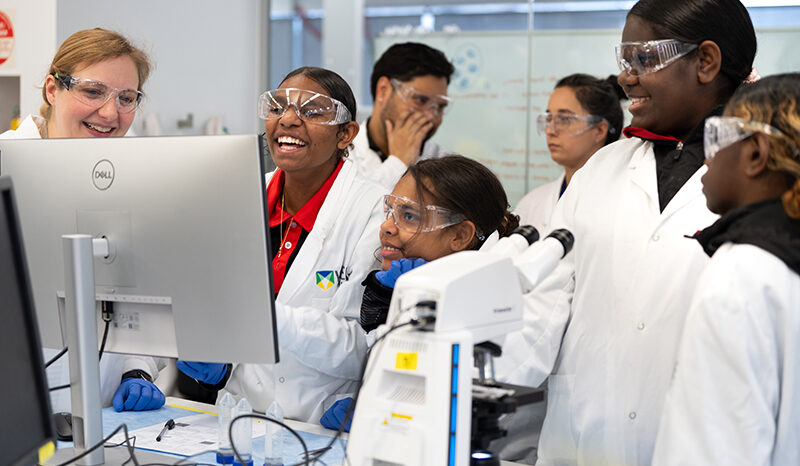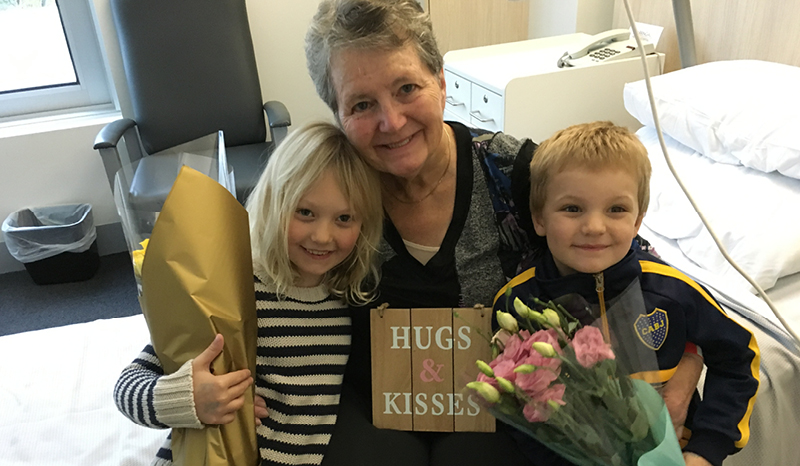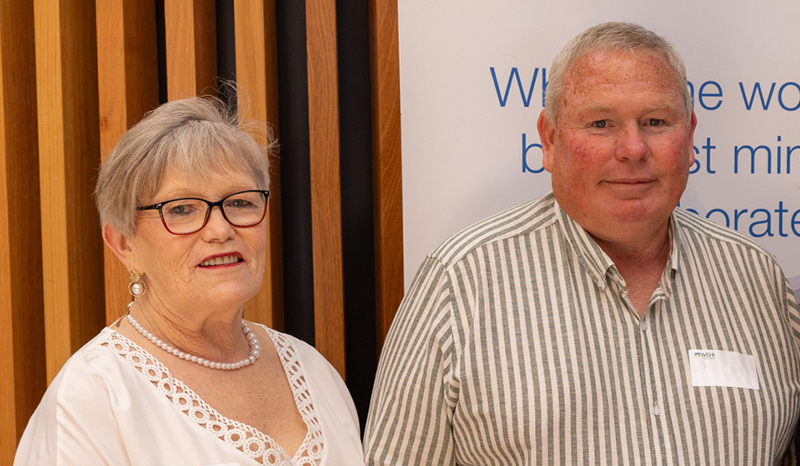WEHI has welcomed National Reconciliation Week this year with the seminar “A Journey to Equity and Benefit in Medical Research”, presented by guest speaker Belle Hart.
The event began with an introduction and Acknowledgement of Country by Professor Misty Jenkins AO, laboratory head and proud Gunditjmara woman, speaking about the kind of institutional behaviour that impedes progress towards equitable health outcomes for all Australians.
Prof Jenkins welcomed our special guest speaker, Belle Hart from WEHI’s Bryant Lab and Program Coordinator for Victoria ALIGN (Australian Alliance for Indigenous Genomics) to talk about the importance of ensuring access to respectful, inclusive and equitable health care for Aboriginal and Torres Strait Islander people, including medical research.
Speaking on the need for co-design in research programs, Belle Hart said “If your research affects Australians, it will affect Aboriginal and Torres Strait Islanders”.


